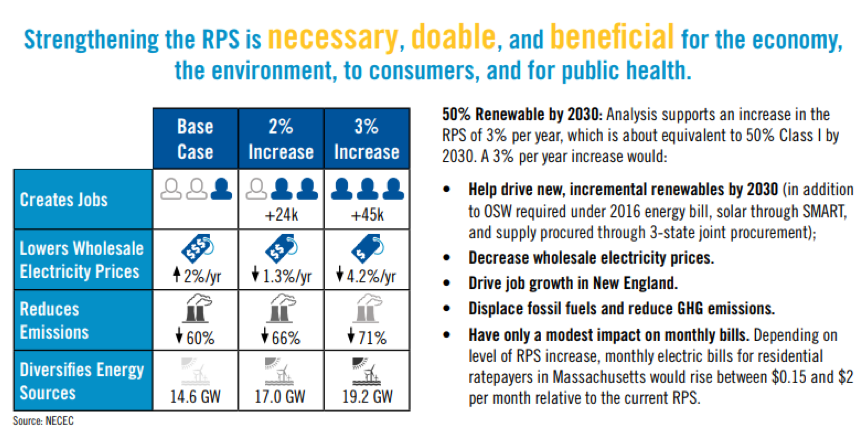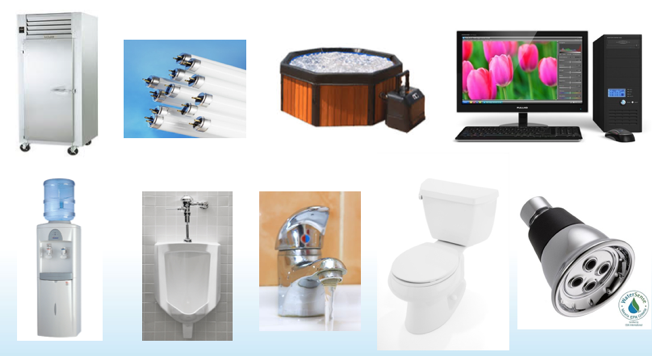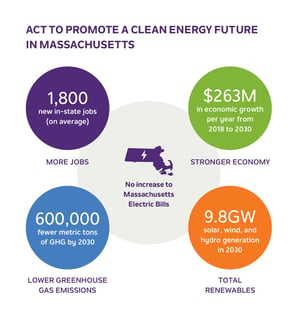Are we finally prioritizing climate? Senate Committee Releases Comprehensive Energy Bill
Earlier this week, the Massachusetts Senate Committee on Global Warming and Climate Change released a...

With less than a month to go in the legislative session, several clean energy bills have yet to be decided. The following could use an extra push to get over the finish line.
The following bills have made the last stop before being sent to the House floor for a vote, an essential step towards full passage and enactment.
Currently before House Ways & Means:
H.4575 – An act to increase renewable energy and reduce high-cost peak hours
H.3404 – An act relative to expanding resource efficiency in the Commonwealth
H.4576 – An act to increase grid resiliency through energy storage
Currently before other committees:
H.4577 – An act relative to net metering (in House Committee on Steering, Policy, and Scheduling)
H.1724 – An act relative to energy efficiency (in House Committee on Bills in the Third Reading)
Massachusetts’ Renewable Portfolio Standard (RPS) (H.4575)
Increasing the RPS has been a top priority for Mass Energy for two legislative sessions, but this year, thanks to overwhelming support from myriad stakeholders, we are closer than ever before to seeing the RPS adjusted upwards.
Decarbonizing electricity supply, which is what the RPS does, is the cheapest way to achieve deep GHG emission. Lots of states, including Rhode Island and Connecticut, have already extended or increased their RPS requirements partly to help achieve clean energy and climate goals.
House Bill 4575 would increase the RPS by 2% per year. The bill is currently before House Ways and Means and must be released as soon as possible so the full body can take up a vote. Senate Bill 2545 passed unanimously in June. It includes a 3% per year increase to the RPS.
The RPS increase is supported by a diverse coalition of stakeholders – environmental groups, grassroots organizations, clean energy developers, health care providers and hospitals, and businesses. Bolstered by the findings of both a 2017 analysis of the Massachusetts RPS and a recently released 2018 analysis of key provisions included in the Senate bill, these groups, including Mass Energy, have rallied behind 80% renewable energy by 2050 (3% per year increase).
The utilities and Associated Industries of Massachusetts (AIM) have been outspoken in their opposition to an increase in the RPS. They are making an unsubstantiated claim that an increase in the RPS will undermine procurements of large hydroelectricity required by MA’s 2016 energy bill. We do NOT agree that accelerating the deployment of local, in-region renewables is incompatible with the purchase of hydroelectricity. If anything, RPS-eligible resources complement hydro imports and both are needed to transform our grid.
Time (running out in the session) is the biggest threat to the best climate and energy policy tool you’ve never heard of.
 Efficiency standards are the minimum requirement for energy and/or water efficiency that must be met by most major appliances, equipment, lighting, and plumbing products. Standards ensure that products use fewer resources while also preserving quality and affordability. President Reagan first signed national appliance standards legislation in 1987. Federal standards generally apply to the manufacture and import of regulated products. State standards apply to what can be sold in that jurisdiction. It behooves us to have the strongest state standards possible, because even though federal standards can preempt state standards, no weaker federal standard has ever preempted a stronger state requirement.
Efficiency standards are the minimum requirement for energy and/or water efficiency that must be met by most major appliances, equipment, lighting, and plumbing products. Standards ensure that products use fewer resources while also preserving quality and affordability. President Reagan first signed national appliance standards legislation in 1987. Federal standards generally apply to the manufacture and import of regulated products. State standards apply to what can be sold in that jurisdiction. It behooves us to have the strongest state standards possible, because even though federal standards can preempt state standards, no weaker federal standard has ever preempted a stronger state requirement.
Massachusetts standards haven’t been updated since 2005. Strong standards benefit consumers and the environment, considerably, by eliminating the most inefficient products form the market. Efficiency standards are a low cost strategy to offset the impact of aging power plants going offline. The standards in H.3404 are estimated to equal 11% of the annual output from the Pilgrim reactor, slated to close in 2019. It is also estimated that by 2025 energy savings attributed to the package of updates proposed in the bill will equal 3% of all residential electricity in Massachusetts and reduce the equivalent of emissions from 37,000 cars in that year.
These same standards are estimated to save residents, businesses, and local and state governments more than $160 million annually by 2025 and grow to $245 million annually by 2035. Those are dollars that could be re-invested into the Massachusetts economy, spurring job creation.

Similar to the RPS, there is broad support for updating appliance efficiency standards, including from environmentalists, consumer and low income advocates, and industry members. Even AIM and ALL the energy efficiency program administrators (PAs) – National Grid, Eversource, Cape Light Compact, Unitil, Liberty Utilities, Columbia Gas of Massachusetts, and Berkshire Gas – SUPPORT updating efficiency standards. It’s a no brainer!
Both H.4575 & H.3404 must be released from HWM as soon as possible so the full body can take up a vote.
Contact your State Rep by email or by phone, today. You can find your Representative online: https://malegislature.gov/Search/FindMyLegislator.
...
What about the Senate energy bill?
 The Massachusetts Senate unanimously passed a comprehensive energy bill in June. S.2545, An act to promote a clean energy future contains a number of key provisions, including 3% per year increase in the RPS, a "pipeline tax" ban, elimination of net metering caps, an additional 5,000MW of offshore wind and transmission by 2035, and a storage goal of 1,766MW by 2025. This bill is an action-oriented piece of legislation that prioritizes innovation and seeks to accelerate Massachusetts’ transition away from fossil fuels to clean, renewable energy. And according to a policy brief recently released by the Applied Economics Clinic (AEC) at Tufts University, the provisions in the Senate energy bill would yield tremendous benefits if implemented.
The Massachusetts Senate unanimously passed a comprehensive energy bill in June. S.2545, An act to promote a clean energy future contains a number of key provisions, including 3% per year increase in the RPS, a "pipeline tax" ban, elimination of net metering caps, an additional 5,000MW of offshore wind and transmission by 2035, and a storage goal of 1,766MW by 2025. This bill is an action-oriented piece of legislation that prioritizes innovation and seeks to accelerate Massachusetts’ transition away from fossil fuels to clean, renewable energy. And according to a policy brief recently released by the Applied Economics Clinic (AEC) at Tufts University, the provisions in the Senate energy bill would yield tremendous benefits if implemented.
It's up to House leadership to decide if it will take up S.2545. However, even if the House chooses not to take up the Senate bill in its entirety, there are still plenty of ways the House can advance clean energy and climate action in the Commonwealth before July 31. Increasing the RPS (H.4575), updating appliance efficiency standards (H.3404), together with a handful of other bills targeting storage (H.4576) and energy efficiency (H.1724), as well as net metering (H.4577), have the ability to drive economic and jobs growth, benefit public health, reduce GHG emissions, and demonstrate further that Massachusetts is as much a national leader on clean energy and climate as it has been on key issues for generations.
Earlier this week, the Massachusetts Senate Committee on Global Warming and Climate Change released a...
Massachusetts lawmakers vote to pass H.4857, An act to advance clean energy. The final bill was released from...
Comments